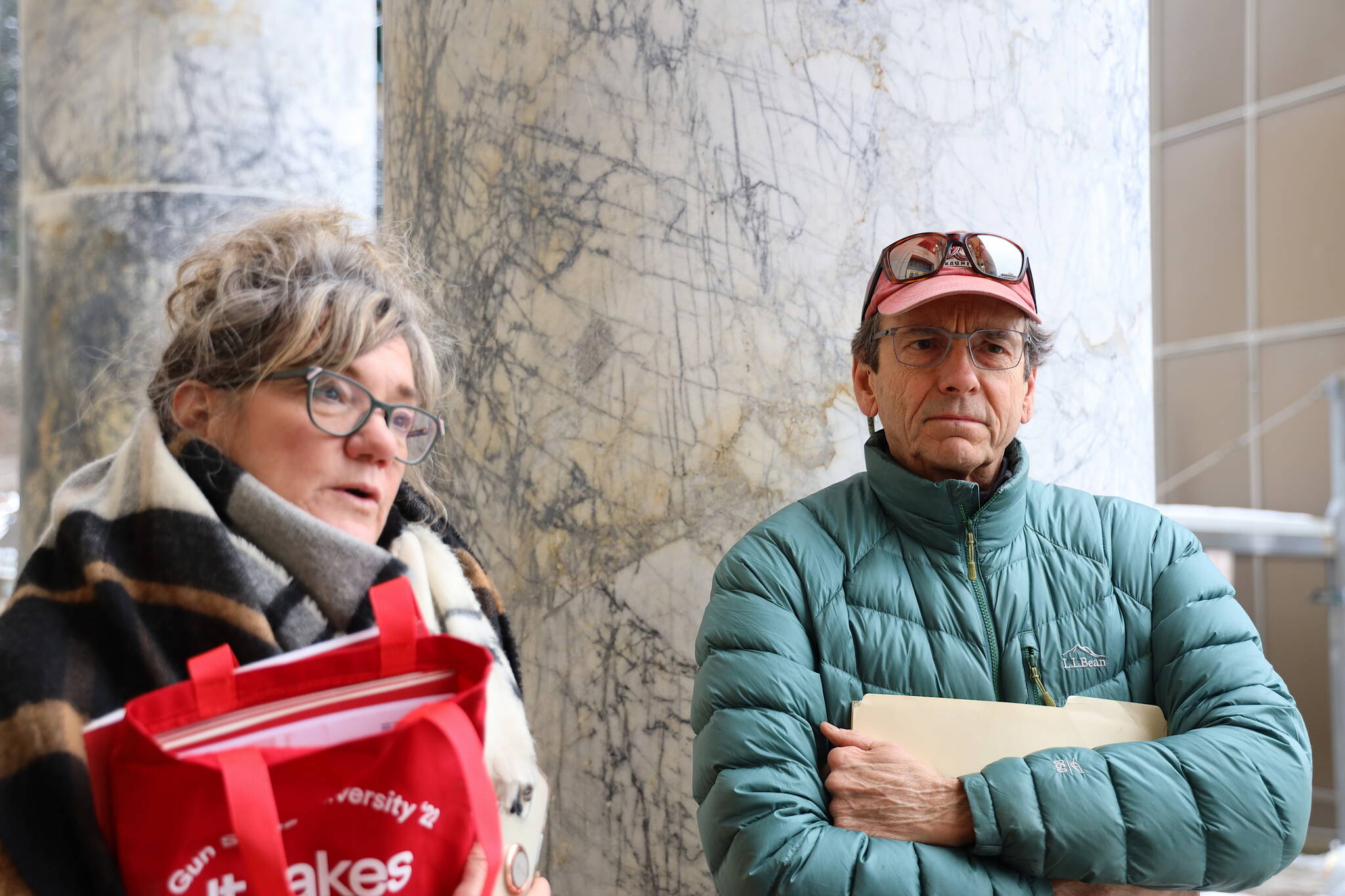There’s a three-way showdown — of limited sorts — at the AK corral these days with advocates demanding stronger gun safety laws, state legislators pushing bills to make concealed carry and sales during disasters easier, and Mike Dunleavy being voted governor of the year by an organization with “a mission to protect the freedom to hunt and to promote wildlife conservation worldwide.”
But so far it’s a low-caliber battle since the issue appears to be a low priority this session compared to some past years.
“As a caucus we haven’t identified that as a priority to put forward caucus legislation on that,” said House Minority Leader Calvin Schrage, an Anchorage independent, during a media availability Tuesday. He said the caucus is focusing on its priorities of increasing education spending and restoring fixed-benefit pensions for state employees, but “I wouldn’t be surprised to see potential legislation come forward at a future date” from individual legislators.
Only two gun-specific proposals have been introduced so far by House and Senate majority members. One is a non-binding resolution (HJR 3) encouraging encourage Congress to pass a law making any state’s concealed-weapon carry permits valid in all states (Alaska requires a driver’s license, but no permit). The other prohibits the state from restricting ownership, sale or possession of firearms and ammunition during disaster declarations (HB 61 and SB 63), essentially a reaction to restrictions imposed during the COVID-19 pandemic.
A news release announcing dozens of adult and student advocates would circulate the Alaska State Capitol on Tuesday to lobby lawmakers was essentially just that, with about 30 people making visits on their own with no rallies on the front steps or other attention-getting media events that might have been implied.
Tamara Kruse, a volunteer with Moms Demand Action, which co-organized the annual advocacy day with Students Demand Action, said the issues of emphasis this year are secure firearms storage and protection orders for people facing extreme risk.
“We’re not anti-gun,” she said. “We’re pro safety.”
While politicians generally aren’t strangers to gun issues, Kruse noted there’s an unusually large class of first-year members of this year’s Legislature “and they need to get their feet under them.” Also, she noted there’s updated statistics for incidents such as youth deaths by suicide and how gun storage laws can lower those rates.
“We know secure storage works,” she said, and being a concerned parent “is a commonality that we share with most people in this building.”
Nonetheless, Kruse acknowledged, “you’re not going to reach every person with their head in the sand.”
Among the gun control legislation introduced during recent sessions was a “red flag” bill allowing law enforcement officials to petition courts for temporarily taking guns away from a person considered a danger to themselves or others. But the primary sponsor of a 2019 bill, state Rep. Geran Tarr, an Anchorage Democrat, is no longer in the Legislature and Rep. Zack Fields, another Anchorage Democrat who co-sponsored the bill, said the proposal hasn’t been discussed this year.
“I do support taking steps to address domestic violence and when we see indicators of violence, but we’ve had no discussions of that (bill) this year because we need to remain focused on what we need to achieve this year,” he said, referring to the priorities named by Schrage.
Which means the most high-profile firearms-related development of the past week might belong to Dunleavy, who was named governor of the year by Safari Club International at its annual convention in Nashville during the latter half of last week. Dunleavy is an advocate of public land access, hunting and firearms rights, including filing or joining numerous lawsuits against the federal government for alleged infringement on those rights.
Among such recent efforts is joining a coalition of 24 states filing a lawsuit against U.S. Attorney General Merrick Garland, and the Bureau of Alcohol, Tobacco, Firearms and Explosives, seeking to nullify rule governing stabilizing braces. The device, originally designed for disabled veterans, an an attachment for AR-15 and similar styles of firearms that allows the guns to be held and aimed more accurately with one hand.
• Contact reporter Mark Sabbatini at mark.sabbatini@juneauempire.com

